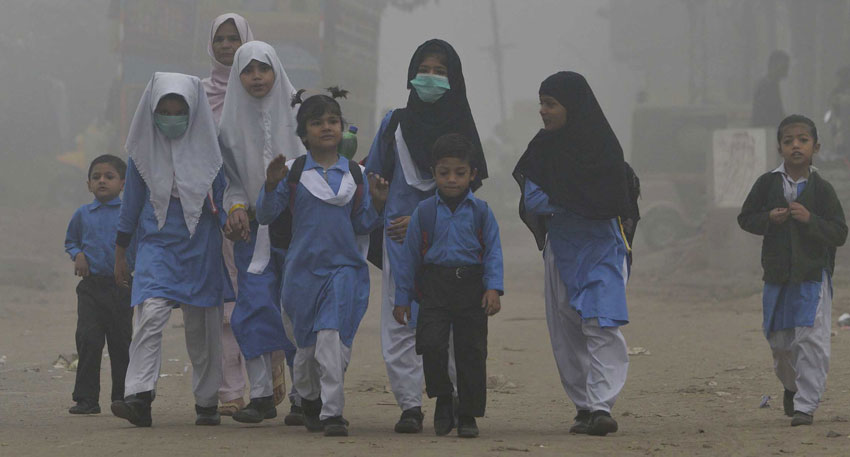
As air quality continues to worsen across Punjab, the provincial government has rolled out new smog safety guidelines for schools in an urgent bid to protect students from the growing health risks of toxic air.
Issued through the Punjab Education Department, the guidelines direct all schools to immediately suspend outdoor activities—including sports and morning assemblies—on days when the Air Quality Index (AQI) crosses dangerous levels.
The move comes amid rising concerns from parents and health professionals over the impact of air pollution on children, particularly those suffering from asthma or other respiratory conditions.
Protecting children from an invisible threat
“Children are among the most vulnerable when it comes to smog,” said a senior Education Department official. “We’re seeing increasing cases of coughing, breathlessness, and eye irritation. This policy is about prevention, not just reaction.”
Under the new rules, all District Education Authorities (DEAs) have been instructed to enforce a series of protective measures in schools. This includes keeping classrooms clean, ensuring proper ventilation, and shutting doors and windows tightly during peak smog hours.
Garbage burning—often a contributor to local air pollution—has been strictly banned within school premises. Schools have been directed to adopt safe waste disposal practices, a step the department says is critical to controlling the spread of harmful pollutants.
Health monitoring and rapid response plans
In a first-of-its-kind initiative, schools are now required to maintain emergency health records for students with respiratory or cardiac conditions. Teachers have been tasked with observing children for early signs of smog-related illness, such as persistent coughing, fatigue, or dizziness.
To ensure a quick response in case of medical emergencies, every district must appoint a health focal person who will liaise with local health authorities and facilitate student care when needed.
“We’re building a system where no child’s health complaint goes unnoticed,” said a representative from the Education Department. “Teachers are being trained to act quickly and responsibly.”
Awareness is key: province-wide campaign underway
Alongside these in-school protocols, the government has launched a province-wide awareness campaign aimed at teachers, students, and parents. The campaign encourages simple but effective practices—wearing masks, staying hydrated, and limiting outdoor exposure, especially for vulnerable children.
Informational posters, school announcements, and parent-teacher briefings are all part of the effort to build a culture of safety during the smog season.
A mother of two school-going children in Lahore welcomed the move. “Last year, my son had constant breathing issues during smog season. I’m relieved the government is finally taking steps to protect our kids,” she said.
Real-time monitoring and accountability
Starting October 5, all schools will be required to submit daily compliance reports. These will include:
- AQI readings monitored by the school
- Records of awareness activities
- Names and contact details of designated health coordinators
The reports will be submitted to the DEAs, which are responsible for ensuring full compliance with the government’s smog response strategy.
Officials say the aim is not just to protect students in the short term but to instill long-term habits and preparedness for environmental health risks.
A shared responsibility
While the measures are focused on schools, authorities emphasise that tackling smog is a shared responsibility. “Parents, educators, communities—everyone has a role to play,” said the Education Department spokesperson.
Environmentalists have also called for broader systemic reforms, including curbs on industrial emissions and vehicular pollution, which are major contributors to smog in urban Punjab.
Also Read: NDMA issues warning for Punjab and KP - Which areas are most at risk?
“In a world where our children are breathing poison in the air, the least we can do is create pockets of safety around them,” said one school principal in Faisalabad. “These new rules help us do just that.”




